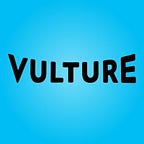By David Marchese
Chimamanda Ngozi Adichie is the rare contemporary novelist to have earned celebrity status as a result of both her art and her politics, to the diminishment of neither. Her award-winning, best-selling novels, Americanah and Half of a Yellow Sun, combine graceful storytelling with real moral heft; that latter quality also radiates throughout her nonfiction works, We Should All Be Feminists and Dear Ijeawele: A Feminist Manifesto in Fifteen Suggestions (the latter newly published in paperback). “I want to tell the truth,” says Adichie, talking at a restaurant in midtown Manhattan. “That’s where my storytelling comes from. My feminism comes from somewhere else: acute dissatisfaction.”
Adichie, 40, is in New York for a brief visit before heading back to the home outside of Baltimore where she, her husband, and their little girl live when they’re not in her native Nigeria. “I don’t remember a time when I didn’t want to tell stories,” says Adichie. “Sadly, I also don’t remember a time when I wasn’t telling people what I think about the world.”
